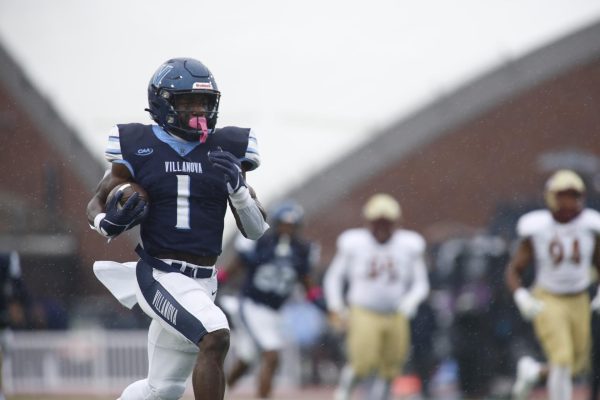This week in Villanova History: Big chill kills student ticket campout
November 5, 2003
Beth Dibiase ’95Staff Reporter
Tickets for the 1995-96 Men’s Basketball season were distributed to 400 students Nov. 3. The tickets were to be given out Nov. 5 at 8 a.m., but weather conditions prompted officials to distribute the tickets earlier than planned.
Although the line was scheduled to form at 5 p.m. on Nov 4, about five students tried to start the line at 9:30 p.m. on Nov. 1, according to Bob Nashak, president of the Basketball Club. These students were turned away, because the Department of Public Safety was not prepared to control the crowd until 7 the following morning. By midnight Thursday, the maximum of 400 students had assembled around the University football field to await the distribution. Students were permitted to leave the line on Fri. to attend their classes but were unable to leave for any other reason.
The fans remained on the field until approximately 10 p.m. on Friday when Athletic Director Gene DeFilippo announced that, after consulting weather reports which predicted temperatures below 30 degrees, the Basketball Club, the Student Government Association (SGA) and the Athletic Department had come to the decision to give the tickets out early. They considered moving everyone to the duPont Pavilion, the Jake Nevin Field House or the Butler Annex, but Wildcat Roar ’95, athletic practices and fire codes precluded that course of action.
Many students criticized the four day waiting period for tickets, but the Basketball Club and SGA stressed that by distributing the tickets on a first come, first-served basis, they could not realistically restrict the starting time.
Nashak said, “We haven’t even begun to think about next year.” SGA President Michael O’Brien said that “we are looking for improvement” in ways to enable all students to receive tickets without many problems. He said that an SGA senator has proposed a ticket referendum to be held March 5 during which students would be able to vote on possible future ticket plans.
O’Brien criticized the Athletic Department’s handling of allocating tickets to students. The present system allows only one in four students to attend each basketball game, he said. He added that the groups involved did “the best we could do with a bad situation handed to us from the Athletic {Department}.”
Vince Nicastro, manager of the Athletic Ticket Office, said that “overall, the people who stayed out there were 400 happy people … and hopefully we were able to reward some die-hard fans and also accommodate some other fans” with the upcoming ticket lotteries.
The large demand for tickets is “directly related to the high expectations for our team,” O’Brien, so the intense interest and crowds are “a good problem to have.” The remaining student tickets will be distributed in the seven lotteries.










